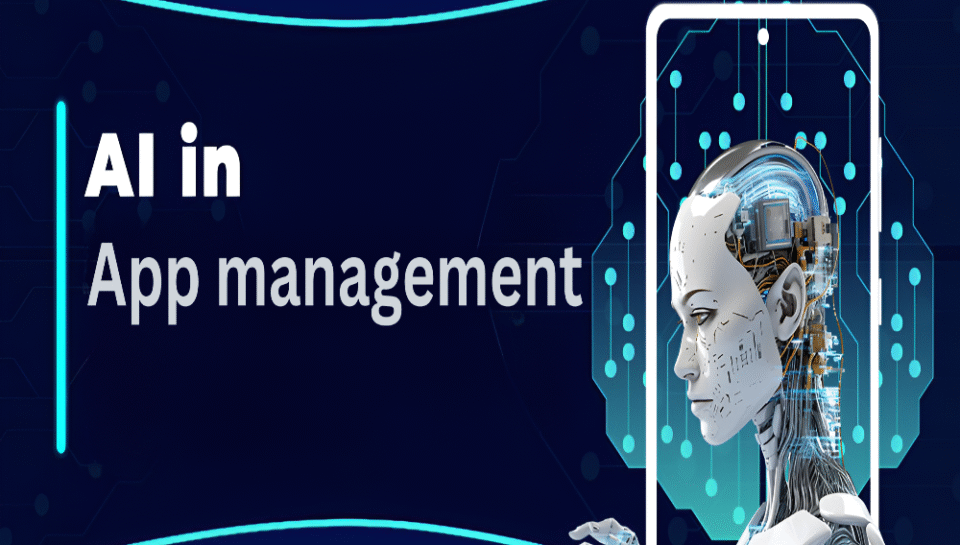
Describe how app management adapts to emerging tech like AI in India.
Introduction
India’s rapidly evolving digital ecosystem is embracing cutting-edge technologies to improve service delivery, customer experience, and operational efficiency. Among these, Artificial Intelligence (AI) stands out as a transformative force that is reshaping how applications are developed, maintained, and optimized. App management, traditionally focused on performance, security, and updates, is now adapting to leverage AI for smarter, faster, and more personalized application experiences. As India leads a wave of tech innovation—especially in sectors like fintech, edtech, healthtech, and e-governance—AI integration in app management is becoming not just an enhancement but a necessity. From intelligent monitoring to predictive maintenance and contextual personalization, AI is redefining the principles and practices of managing applications in the Indian IT landscape.
Automating performance monitoring and diagnostics
AI-driven app management tools are revolutionizing how performance is monitored. Instead of relying solely on static thresholds and manual alerts, AI systems can now learn from historical data to identify anomalies, predict performance drops, and suggest remedial actions. Indian IT firms are using machine learning models to analyze server logs, network latency, and user behavior patterns to detect inefficiencies automatically. This shift reduces downtime, enhances reliability, and ensures proactive incident resolution, critical for apps used by millions across banking, government services, and e-commerce.
Enhancing user personalization
AI enables hyper-personalization by analyzing user preferences, behavior, and historical interactions. In app management, this means dynamically adjusting interfaces, recommendations, and content for each user. Indian app managers are deploying AI algorithms to deliver regional language content, personalize user dashboards, and adapt notification timing based on individual engagement habits. This has proven especially effective in sectors like online education, entertainment, and food delivery, where customer loyalty is linked directly to user experience.
Optimizing update and release cycles
AI is helping IT teams in India optimize their app update cycles by forecasting user adoption, identifying critical feedback trends, and predicting the impact of new features. Natural language processing tools can scan app reviews and support tickets to detect recurring themes, helping app managers prioritize updates that truly matter to users. Predictive analytics also assists in choosing the right time for releases, reducing deployment risks and increasing the chances of successful adoption.
Streamlining security and threat detection
As cybersecurity threats grow more sophisticated, AI-powered app management tools are offering new ways to detect and respond to attacks. AI systems can identify abnormal access patterns, unauthorized API usage, and suspicious logins in real-time. In India, where IT firms manage sensitive government, healthcare, and financial apps, these intelligent threat detection systems help prevent data breaches and maintain regulatory compliance. App managers now rely on AI to automate vulnerability scanning and patch management, ensuring faster response to emerging threats.
Improving customer support through AI assistants
AI-driven chatbots and virtual assistants are becoming a central part of app support in India. These tools help app managers reduce dependency on human agents by handling common queries, resolving complaints, and even guiding users through complex workflows in real-time. Natural language understanding allows these bots to respond in multiple Indian languages, enhancing accessibility. Integration with app management platforms also enables bots to report issues, generate tickets, and escalate incidents based on urgency and context.
Enabling predictive maintenance
AI allows app managers to predict potential failures before they occur. Using models trained on past performance data, system health metrics, and usage patterns, AI tools can forecast when a component is likely to crash or underperform. In the Indian IT context, where scalability and reliability are essential for high-traffic apps, predictive maintenance reduces downtime and optimizes resource allocation. Sectors like public transportation, health diagnostics, and digital wallets benefit immensely from such foresight.
Supporting AI model lifecycle within applications
As AI becomes embedded within more applications—such as recommendation engines, voice recognition, and fraud detection—the app management role expands to include AI model lifecycle management. Indian app managers are adopting tools that help track data versioning, model drift, retraining cycles, and inference accuracy. Ensuring that AI models within apps remain ethical, unbiased, and high-performing is now a critical responsibility in the Indian tech ecosystem, especially in governance and finance platforms.
Adapting testing and QA practices
AI is also reshaping how testing is approached in app management. Intelligent test automation frameworks can generate test cases, prioritize tests based on risk assessment, and self-heal broken test scripts. Indian QA teams are increasingly using AI tools to simulate real user behavior, identify visual bugs, and perform regression testing faster. These innovations help ensure higher app quality, lower testing time, and better coverage, especially as applications scale rapidly across regions and devices.
Facilitating multi-language and voice interfaces
India’s linguistic diversity demands applications that support multiple languages and input modes. AI plays a crucial role in voice recognition, speech-to-text conversion, and real-time translation within apps. App management must accommodate these AI models by ensuring they are accurate, inclusive, and constantly updated with regional language data. This is particularly valuable in Tamil Nadu, West Bengal, and rural Maharashtra, where non-English-speaking users dominate app usage in areas like agriculture, banking, and telehealth.
Driving data-centric decision making
AI enables deeper insights into how users interact with apps. Through advanced data visualization and behavioral clustering, app managers can understand user journeys, identify friction points, and correlate features with retention. Indian IT companies are using these insights to make product decisions faster and with greater precision. AI also supports A/B testing by dynamically segmenting users and analyzing conversion outcomes in real time, accelerating product innovation.
Conclusion
The integration of Artificial Intelligence into app management represents a paradigm shift for Indian IT companies, startups, and digital governance bodies. It transforms routine operations into intelligent, adaptive processes that can scale with user demand, evolve with technological change, and align with regulatory standards. From predictive analytics to multilingual support and automated testing, AI brings unmatched efficiency, security, and personalization to app management strategies. As India continues to digitize its economy and public services, the ability to manage AI-enabled applications with intelligence and agility will define long-term success. App management is no longer just about maintaining software—it is about orchestrating smart ecosystems that learn, adapt, and grow with every user interaction.
Hashtags
#AppManagementIndia #AIinApps #AIAppManagement #DigitalIndia #EmergingTechIndia #SmartApps #PredictiveMaintenance #AIinDevOps #AppSecurityAI #AIinTesting #PersonalizedUX #AppAnalytics #VoiceEnabledApps #AIinHealthcare #AIChatbots #AIIntegration #AppInnovationIndia #TechTransformation #AppLifecycleAI #SmartMonitoring #MachineLearningApps #AIForAll #DataDrivenApps #AutomationInIT #AIComplianceIndia





